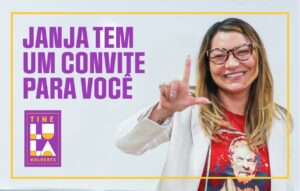As way to fulfill its mission in the promotion of social justice
and well being, Instituto Lula has compiled all the policies and
programmes that changed Brazil in the past 12 years, which drastically
reduced poverty while preserving democratic rights, raising the bar
in the fight against corruption, maintaining economic stability and
elevating Brazil to become a world influential player.
The policies implemented by Brazilian Presidents Luiz Inácio Lula
da Silva and Dilma Rousseff between 2003 and 2016 transformed the
country radically, turning it from a “country for the few into a
country for all”. According to Instituto Lula, Brazil is now a
country that is gaining in strength because there are fewer and fewer
poor Brazilians.
In fact, few countries have managed to grow with social inclusion,
in a fully democratic environment as Brazil has.
Among the large economies in the world, Brazil led the world in
fighting social injustice.
It created 21 million jobs, granted a real 70% appreciation of the
minimum salary and tripled investments in education.
This resulted in taking 36 million people out of extreme poverty
and elevating 42 million people to the middle classes.
During all this period, inflation was was kept within the target
range, the public debt was declining, the international reserves
increased, and, at the same time, Brazil also increased its role as
an important world player and influencer.
In section known as The Brazil of Change (O Brasil da Mudança)
the challenges, policy decisions and the results of these 12 years
are explained in graphs, texts and images.
The project is divided into four big thematic areas (all texts are in English, Spanish and Portuguese):
Social development – the people firs: This is divided into six programmes: Social Inclusion; Bolsa Família (Cash trasnfer Programme); Electricty for All; Education; Health; Housing.
Economy – growth with distribution of wealth: This section includes: Family Farming and Agrarian Reform; Agribusiness; Regional Development; Jobs and Salaries; Investment Programmes – PAC; Pre-Salt Oil; Micro-economy; Macro-economy.
Democracy – citizens’ rights for all: Human Rights; Security ; Social Participation and Accountability ; Culture ; Communications.
Brazil and the World – a stronger and more respected country: The Fight Against Corruption; Foreign Policy; Environment; Defense; Sports .
We wish you a good trip into the new Brazil that was born out of the
will of people and doesn’t stop growing nor does it stop promoting
social inclusion.




